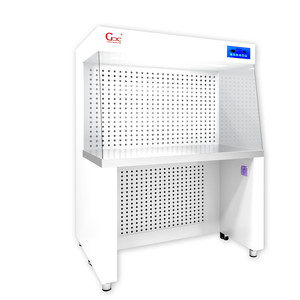Introduction to Small Lab Ovens
Small lab ovens are essential equipment used in various scientific and industrial applications. They provide precise temperature control and consistent heating for a variety of processes, including drying, sterilization, and material testing. Compact in design, these ovens are a perfect fit for laboratories with limited space while still delivering high performance. Their versatility makes them a favored choice among researchers, technicians, and quality control professionals across different fields.
Types of Small Lab Ovens
Small lab ovens come in various types, each tailored for specific applications within a laboratory setting. Understanding these types can help you choose the right oven for your needs:
- Gravity Convection Ovens: Ideal for uniform heating, these ovens rely on natural air convection to distribute heat evenly, making them perfect for drying processes.
- Mechanical Convection Ovens: Equipped with fans, these ovens provide forced air circulation, reducing drying times and ensuring precise temperature control.
- Vacuum Ovens: Designed for heat-sensitive materials, these ovens remove air and moisture during heating, preventing oxidation and degradation of the samples.
- High-Temperature Ovens: Capable of reaching temperatures above 300°C, these ovens are suitable for materials that require high-temperature applications.
Applications of Small Lab Ovens
The versatility of small lab ovens allows them to be employed in a wide range of applications. Below are some notable uses:
- Material Testing: Small lab ovens are essential for conducting thermal and mechanical tests on materials like polymers, metals, and ceramics.
- Drying Processes: Commonly used to remove moisture from samples, making them ideal for preparing samples prior to analysis or testing.
- Sterilization: These ovens can be used to sterilize glassware, equipment, or even specific biological samples by providing controlled heating.
- Calibration: Often utilized in calibration processes, small lab ovens ensure accurate temperature readings and processes in laboratory equipment.
Features and Advantages of Small Lab Ovens
The design and features of small lab ovens make them indispensable tools in various laboratory environments. Here are some key features and benefits:
- Compact Design: Their space-saving design allows them to fit easily on laboratory benches while maximizing workflow.
- Advanced Temperature Control: Equipped with precise temperature controls, they offer reliable heating for sensitive experiments.
- Easy Operation: User-friendly interfaces and digital displays make operation intuitive, minimizing training time.
- Energy Efficiency: Many models are designed to be energy-efficient, reducing operational costs and environmental impact.
- Safety Features: Built-in safety features, such as over-temperature protection and alarms, help prevent accidents and ensure safe operation.




















































